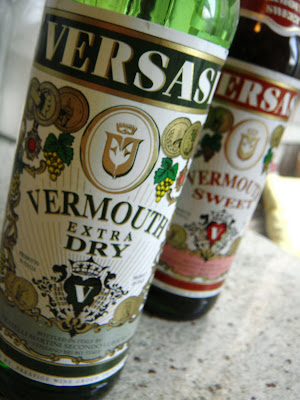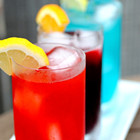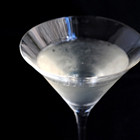It is my goal that no one should ever have to feel this pain when looking at a drink menu. Allow me to be your guide to the cocktailing world. Maybe at this point you are thinking, whoooa Nancy, obviously I know what vermouth is. I have been making drinks for years! (Or maybe you're a martini fiend.) If this is the case, skip to the next post and do not allow me to insult your intelligence any longer. I, for one, used to look at cocktail menus and wonder, "wtf is vermouth anyway?" So I did some research, and this is what I found.

Vermouth is a fortified wine, like Madeira or sherry. At 18% alcohol by volume, it is one of the most potent things you can buy at the grocery store (at least in Texas), although it's not usually taken straight. "Fortified" means the wine has had a distilled spirit - in this case brandy - added to it, which accounts for the higher alcohol content. (I edited this article to add this after commenter veritas so helpfully pointed it out to me.)
Additionally, vermouth is flavored with herbs and spices (like cardamom, cinnamon, majorjam, and chamomile), so a little bit of vermouth packs a lot of taste. The first vermouth was invented in 1786 in Italy - apparently all the herbal flavors helped to mask the cheapness of cheap wine. (Europeans are very inventive when it comes to drinking.) In Europe it's traditionally drunk before a meal - like the alcoholic version of an appetizer - but we Americans prefer ours in cocktails.
At this point I was going to describe the different vermouths based on how they smell, since I just said not to drink them straight. But then I was like, wait, I am supposed to be an intrepid cocktail blogger. And you don't smell cocktails. You drink them. So here goes:
French, or dry vermouth, is what most people think of when they think of vermouth. Dry vermouth is colorless - it's the one you make a martini with. My first sip of french vermouth tasted a whole lot like medicine. The second sip actually tasted like white wine, although with a whole lot more going on. Aftertaste of...well, unfortunately, my palate is not sophisticated enough to pick out all the different herbs and spices. I tried and tried to think what the taste of french vermouth reminded me of and then I realized...it reminded me of a martini. So I'm just gonna say - lots of flavor, almost savory. Different, but not unpleasant.
Sweet, or Italian vermouth, is brown. It's what you'd use to make a manhattan. It smells spicy, sweet, and robust, and tastes...heavenly. (I didn't think I was going to say that, but then that's what I thought.) It's like when I was little, I used to open the cabinet in the kitchen where my mom kept all the spices and stick my nose in and smell all the aromas blending together. Sweet vermouth smells just like that and tastes just like it too, but sweeter. I think I may have a new favorite thing.
One more thing about vermouth - it's essentially wine, so you can't just keep it on the counter indefinitely like you would with liquor. Exactly how long one can keep vermouth is hotly debated in the spirit community - you see different answers to this question everywhere - but the general consensus seems to be that a bottle of vermouth will keep for anywhere from 3-6 months in the fridge. Which is really just another excuse to make more cocktails - you wouldn't want to waste it, right?






Nice post. Fortified wines, like port, madeira, sherry, and vermouth, have had a distilled spirit, usually brandy, added to them.
ReplyDeleteInteresting about storage: have you noticed any chill haze forming in your fridge-stored vermouths?
Ahh, thanks for the heads up. I am still learning.
ReplyDeleteI have noticed the vermouth getting a little cloudy. I just did a little research and it seems there's some debate over whether to keep vermouth in the fridge or not, but the general consensus seems to be that if you're going to keep it around for a while, it should be refrigerated. What do you usually do?
Thanks for this article. Although I've been a long time beer lover the world of cocktails is new and slightly frightening to me. Articles like this one make it a lot easier to figure out what I'm actually buying and why.
ReplyDeleteWow thanks Nancy from 1 Houston girl to the next can't wait to try it
ReplyDeletewhy wont they store longterm, if stored like a normal bottle of wine? this would seem to be the best way imo
ReplyDelete